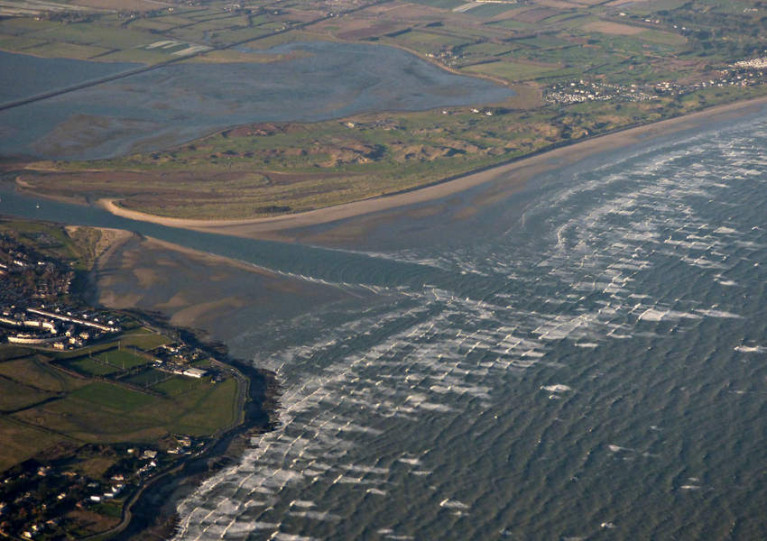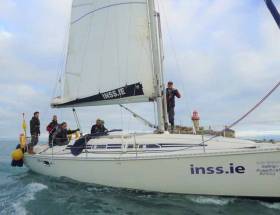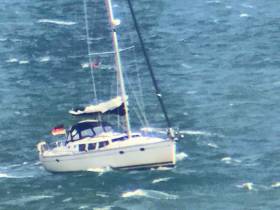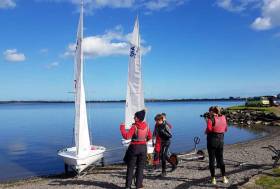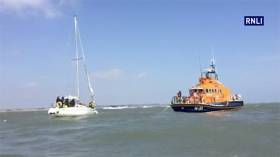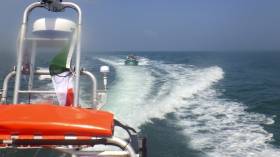Displaying items by tag: Malahide
Optimist Dinghy National Training Week at Malahide Is Judged ‘a Resounding Success’
The final stop on the Optimist dinghy calendar found this intrepid bunch of sailors and their families back in Malahide Yacht Club for the IODAI National Training Week 27-30th October sponsored by CH Marine, the Grand Hotel and Dinghy Performance.
Ninety-five competitors were led by Head Coach Soren Laugesen (Denmark) and Senior Coach David Harte, along with the top national coaches.
This was a week that had something for everyone; big breeze on the Wednesday, light winds on Thursday, information sessions for class captains and parents on Friday and of course, the Halloween Regatta on Saturday. Not to mention the appearance of Olympic hero Annalise Murphy, who came to debrief the youngest of the fleet when they returned to shore and field all their many and varied questions. Trying to explain transits to eight-year-olds and why the trees don't actually need to be in the sea would test anyone's resilience but she rose to the challenge. Her presence was a huge lift to the sailors who hung on her every word.
 The Optimists are briefed ashore at Malahide
The Optimists are briefed ashore at Malahide
The training week also saw the U12 and Development squads announced and selected sailors were able to train together as a group during the event. They will train and compete together throughout the 2022 season.
Onshore there was a dinner held in the Grand Hotel with fun and games organised for younger sailors while parents got to catch up. Class captains from all around the country met, exchanged ideas and Alex Walsh and Brendan Foley of IODAI presented the strategy for the development of the class for 2022.
The Halloween Regatta, which took place on the Saturday and also incorporated the Crosbie Cup saw OOD Neil Murphy run the main fleet off one start, getting through four races in a consistent breeze. The regatta is a precursor to Trails next year, allowing sailors from both the senior and junior fleets to compete against one another.
 Optimists competing at the Broadmeadow in Malahide
Optimists competing at the Broadmeadow in Malahide
William Walsh (NYC), for whom this was his last regatta, comprehensively led the way and took first place overall and first in Senior Main, closely followed by Oisin Pierse (RCYC) and Harry Dunne (HYC). The Junior Fleet saw two local sailors continue their close rivalry, Juliet Ryan (MYC) took first place, this time, with Conor Cronin (MYC) in second and Lucy Moynan (RCYC) in third. Ben Keating (HYC) finished in first place in the Junior Silver Fleet taking home with him the Crosbie Cup too.
Former MYC Commodore, Graham Smith took charge of the Regatta Fleet for the second time this year. As a number of sailors had progressed through the fleet during the season, there were lots of new faces and strong showings from
Hugo Breen (LRYC), James Crawford (RSt.George Yacht Club), Aurele Dion (NYC), Charlie McKibben (MBSC) and Alex Butcher (MYC) finished first to fifth accordingly
It was a fitting end to the year, cementing many friendships in the Oppie family as well as showcasing the sailors abilities and results of their hard work throughout the year.
IODAI Kick Start Junior Sailing Pathway with Optimist "National Training Week" at Malahide Yacht Club
The IODAI in conjunction with Malahide Yacht Club will be hosting the junior Optimist dinghy National Training week 27-30th October.
Although normally part of the Youth Sailing Nationals, due to COVID safety measures in 2021 the decision was made to organise a separate training week.
The Optimists will return to the Youth Pathways in 2022 in Ballyholme Yacht Club in Northern Ireland as well as continuing with its training week rotated at different locations around the country, according to IODAI President Alexander Walsh.
The IODAI National training week is part of an overall plan to kick-start the junior pathway. Participants will get access to top coaching and sports science information used by Olympic sailors. Head coach Soren Laugesen (Denmark) and David Harte, who also recently coached at Lough Ree's double-handed symposium, will be delivering a quality week for the sailors.
The event will consist of four days packed full of coaching, racing, pathfinder events, fun afternoons and social activities.
Sailors from all over Ireland have entered the event and excitement is starting to build.
The week has been put together to ensure that all aspects of Optimist sailing and racing are covered for all of our sailors.
 The event will consist of four days packed full of coaching, racing, pathfinder events, fun afternoons and social activities. Photo: Afloat
The event will consist of four days packed full of coaching, racing, pathfinder events, fun afternoons and social activities. Photo: Afloat
During the week the IODAI U12 and Development squads will be announced providing a great opportunity for the squads to develop friendships and build a sense of team. Those not involved will also be receiving excellent coaching from both International and regional coaches. There really will be superb coaching for all.
While friendships may be forged on the water we all know that there is more to sailing. There are also plenty of opportunities during the week for sailors and their families to enjoy the more social side of the event.
 Head coach Soren Laugesen (Denmark) aims to deliver a quality training week at Malahide
Head coach Soren Laugesen (Denmark) aims to deliver a quality training week at Malahide
Thursday night will see an evening for all at the Grand Hotel Malahide. Dinner for parents will take place in the Matt Ryan bar and the adjoining function room will host our young sailors where they will be kept entertained in the 'Games room'. Dance mats, Retro arcade games and Giant Jenga are just some of the things on offer. Tickets for dinner can be bought via the website - before Monday 25th.
Friday will see coaching continue for our sailors providing a chance for class captains from all clubs to meet up onshore before a parent's information session. The morning is designed to inform parents about life as an Oppi parent, providing support and guidance for those just starting out and advice given from those more seasoned.
The rest of the afternoon will consist of a fun afternoon where sailors and parents alike participate in fun on the water activities with the coveted 'Parents Race' in hot contention! After a fun-filled afternoon on the water St James' Terrace Club House will host Paddy's Pizza Pie where pizza can be purchased after the busy activities of the day.
Saturday will see a return to racing with the Halloween Regatta for all NTW entrants combined with the Crosbie Cup. Sponsored by Dinghy Performance prizes include a new J Green sail and a set of Performance Foils.
The IODAI have issued a special thanks also to CH Marine for their sponsorship and the Grand Hotel for the use of their premises.
Originally hosted from the decks of the 102-ft Lightship Albatross in Dún Laoghaire Harbour, the event has grown popular as ever within Sea Scouting under a very exciting team-racing format using fleets of Pico/ Topaz ensuring it is fun and accessible for all at Malahide in North County Dublin.
Alongside the main team-racing event, competitors face a seamanship challenge where they are scored on board a multi-hander to sail efficiently around a course and complete exercises as a team such as man-overboard and anchoring.
 To mark the 50th anniversary, a single-handed race was also included in this year's events; the Albatross Race, won by Shane O'Rourke from Arklow.
To mark the 50th anniversary, a single-handed race was also included in this year's events; the Albatross Race, won by Shane O'Rourke from Arklow.
To mark the 50th anniversary, a single-handed race was also included in this year's events; the Albatross Race, won by Shane O'Rourke from Arklow.
The 16 teams from Malahide, Howth, Dun Laoghaire, Dollymount and Arklow all put in a fantastic effort under very testing and breezy conditions.
Organisers gave a big thanks to Officer Of the Day Colum McCaffrey and Race Officers Roger Campion and Sean Anglim from Malahide YC, who provided x 46 safe and exciting races under two fleets which made for an excellent day of sailing!
Congratulations to the full female Malahide Néala team, who came out on top as this year's Team Racing winners.
Two Men Plead Guilty To Illegal Net Fishing In Malahide
Two men have pleaded guilty on charges relating to illegal net fishing at Broadmeadow Estuary in Malahide, Co Dublin.
On Tuesday 28 July, Maxim Loan and Gheorgie Pingica appeared before Judge Bernadette Owens at Swords District Court in respect of breaches of fisheries legislation at Broadmeadow Estuary on 5 August last year.
Fisheries officers from the Dublin District of Inland Fisheries Ireland (IFI) said that on the night in question, surveillance was carried out on a net that had been staked in the estuary.
Later that night, IFI officers observed two individuals retrieving and servicing a net and placing it in a vehicle.
Officers carried out a search and seized a net 68 meters long which contained mullet and flounder, and the men were apprehended.
Judge Owens convicted Loan and Pingica under Section 102 of Fisheries Amendment Act and imposed fines totalling €1,000, and awarded costs to IFI of €1,814.
Brian Beckett, director of IFI’s Eastern River Basin District, said: “Our officers enforce fisheries laws in both covert and non-covert operations dedicating significant surveillance man-hours in the protection of our valuable fish populations.
“Illegal nets are very damaging to vulnerable estuary fish stocks including salmon, sea trout, bass and mullet along the East Coast. This conviction highlights the persistent issue of illegal net fishing which is a serious environmental crime and will not be tolerated.”
Irish National Sailing & Powerboat School to Run Yachting Courses from Malahide in 2018
The Irish National Sailing & Powerboat School will run a series of yachting programmes on a trial basis from Malahide in County Dublin this year. The schedule will include the introductory RYA Start Yachting Course, the 5-day RYA Competent Crew Course and the RYA Day Skipper, for aspiring skippers. Course will run from Malahide Marina, where we are also running a schedule of Irish Sailing Powerboat Programmes.
The expansion from Dun Laoghaire has been facilitated by the recent addition of the Elan 36, Dreamcatcher to the yacht training fleet and builds upon a significant increase in demand for this type of training.
Speaking about the new Malahide base, Alistair Rumball, originally from the area, having started his sailing on the estuary says “It’s a lifetime’s ambition realised. In my teaching opinion, Broad Meadows, the Estuary and the coastal area are most wonderful sailing areas and I’m delighted to be back!”
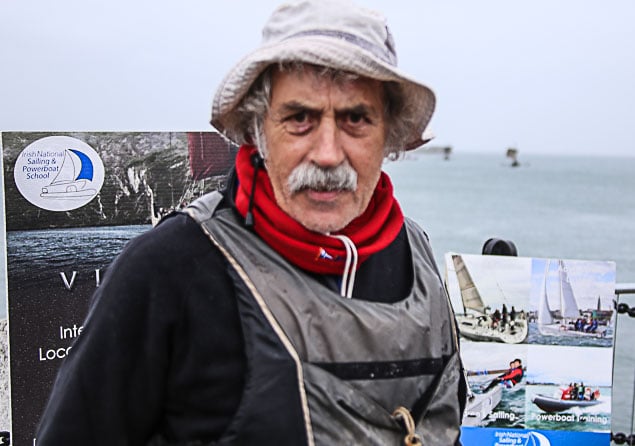 Alistair Rumball of the INSS is back in Malahide Photo: Afloat.ie
Alistair Rumball of the INSS is back in Malahide Photo: Afloat.ie
INSS Malahide Sailing Course Information:
- Start Yachting Course
- Competent Crew Course
- Day Skipper Course
- Powerboat Courses
The Irish National Sailing & Powerboat School is Ireland’s largest sailing and powerboat training provider and has operated out of Dun Laoghaire Harbour for 40 years. RYA Cruising Courses, including Start Yachting, Competent Crew, Day Skipper, Coastal Skipper and Yachtmaster are conducted on board the school fleet of training yachts.
In addition to this training, the school runs a busy programme of adult introductory dinghy, yacht and powerboat courses, as well as children’s sailing course throughout school holidays and at weekends during the school year.
For more information: Irish National Sailing & Powerboat School Glyn Williams Ph: 01 2844195 [email protected]
Coastguard Medevac Alerts In West Cork & Dublin
#Coastguard - Castletownbere’s Irish Coast Guard team was alerted on Friday night (29 September) by Valentia Coast Guard to a medevac scheduled for the early hours of Saturday.
FV Argeles, a French fishing vessel, had an injured crewman onboard and was expected in Castletownbere some hours later.
The coastguard crew and Castletownbere HSE ambulance were waiting for the trawler when it docked at 2.40am. The two crews worked together to assess and stabilise the casualty, who had sustained back injuries after a fall.
After the casualty had been transferred to the ambulance, they were taken to Cork University Hospital for further treatment. The coastguard team were stood down at 5.10am.
Elsewhere, the Marine Rescue Coordination Centre in Dublin received a request for assistance from a yacht off the coast of Malahide on Thursday afternoon (28 September).
A crew member aboard the yacht, which was en route to Dun Laoghaire Marina, was ill and required medical attention.
It was agreed that the yacht would continue to its destination. RNLI Dun Laoghaire was sent to provide an escort and also dropped crew aboard to assist.
On arrival to the marina, Dún Laoghaire Coast Guard members greeted the yacht alongside HSE paramedics and gardaí. The ill crew member was transported to hospital for further medical attention.
420 Introduction Day at Malahide Yacht Club Gives Sailors First Taste of 'Pathway' Dinghies
Sunshine on Saturday greeted the groups of sailors taking part in the first of the 420 sailing introduction days. Groups of six sailors used the class association training boats to get their first taste of sailing in these Irish Sailing Performance Pathway boats. Sailors had the option of two hour sessions in either the morning or afternoon, both sessions coached by experienced 420 sailors who took sailors through the basics of boat set up and handling.
Sailors from Malahide Yacht Club, Howth Yacht Club, Greystones Sailing Club and the National Yacht Club took part in this first introductory day. The next introductory day will also be held at Malahide Yacht Club on Saturday the 14th October, a small number of places are still available for this second day and any sailors wishing to attend should email [email protected] to make enquires on availability.
Stranded Yacht Towed To Safety By Howth Lifeboat
#RNLI - Howth RNLI launched its all-weather and inshore lifeboats yesterday (Monday 1 May) to reports of a sailing yacht with steering failure at the entrance to Malahide Estuary.
The inshore lifeboat was first on scene and located the casualty vessel just after noon. The 30ft sailing yacht, with five people aboard, was experiencing steering problems and unable to safely manoeuvre.
Weather conditions at the time had a moderate sea state in Force 4-5 winds.
The all-weather lifeboat arrived on scene shortly after and secured a towline to the stricken yacht before towing it to the safety of Howth Marina.
Both the inshore and all-weather lifeboats returned to station and were stood down following the successful rescue.
Speaking after the callout, Howth RNLI duty coxswain Ian Sheridan said: “We were delighted to assist the five crew of the sailing yacht after they found themselves with no steering at the entrance to Malahide Marina.
“They quickly radioed for assistance which was the correct thing to do and we were able to launch and tow the yacht to safety.”
Skerries Lifeboat Tows Motorboat To Safety Off Malahide
#RNLI - Skerries RNLI responded yesterday afternoon (Saturday 28 May) to reports of a motorboat adrift with engine difficulties some four miles east of Malahide Estuary.
Skerries RNLI volunteers launched the lifeboat shortly before 2pm when Dublin Coast Guard tasked them to assist the boat, with four men on board, that was experiencing engine trouble.
Those on board the casualty vessel was able to provide the coastguard with GPS co-ordinates for their position.
As a result the lifeboat, with volunteer Joe May at the helm and crewed by Steven Johnson and Laura Boylan, were able to proceed directly to the vessel.
The motorboat was then taken under tow by the lifeboat and returned safely to Howth. Conditions at the time were clam with a slight sea fog.
Speaking after the callout, Skerries RNLI lifeboat operations manager Gerry Canning said: "Everyone on board was wearing a lifejacket and they were able to give us their exact location. Even the most prepared can encounter difficulties at sea.
"We would just like remind people that if they are in difficulty or see others who may be in difficulty to dial 999 and ask for the coastguard."
Skerries RNLI is currently on the lookout for new volunteers to join its 18-strong crew, as previously reported on Afloat.ie.
Afloat.ie Reader Leads Gardai to 'Stolen' Welsh Yacht in Malahide
An Afloat.ie and Dun Laoghaire Marina appeal led Gardai to a yacht 'stolen' in North Wales last week being found in a north Dublin estuary.
The yacht was found within hours of the Afloat.ie story being published last Friday in Malahide, one of Ireland's most popular boating inlets.
Gardai have confirmed the yacht in question, a 38-foot ketch named 'Fram', has been recovered. It has been seized by Gardai and secured for technical examination a Malahide Marina. Gardai are investigating the theft and looking at local CCTV to see how and when the Vindo 38, long keel ketch came across the Irish Sea from Holyhead Marina.
Following an Afloat.ie report it is understood an eagle eyed reader spotted the yacht, with white hull and varnished topsides, recently moored in Malahide estuary. The reader noted it appeared very similar to the boat originally featured in social media by Dun Laoghaire Marina.
Anyone with information about the craft is asked to make contact with Malahide Garda Station.
More on the story here



























